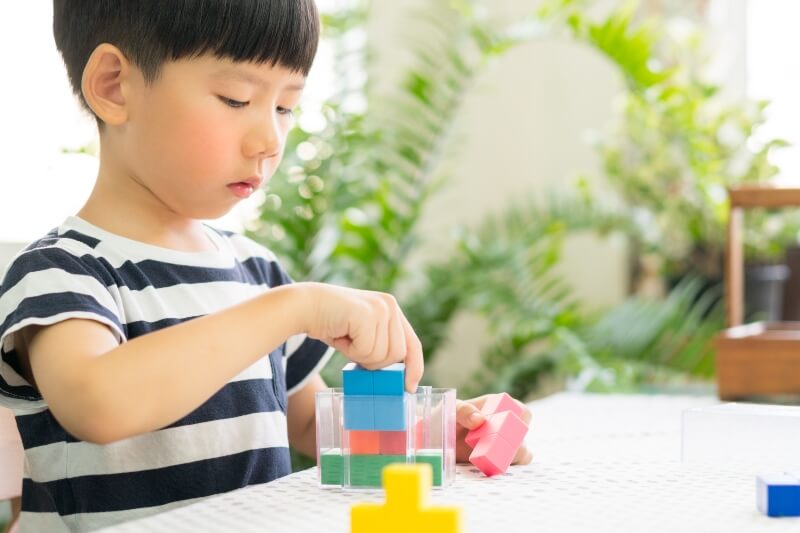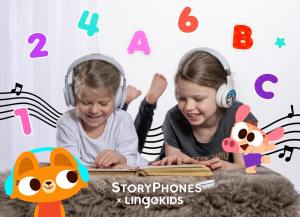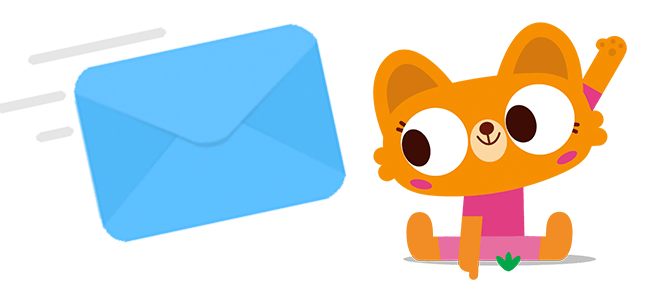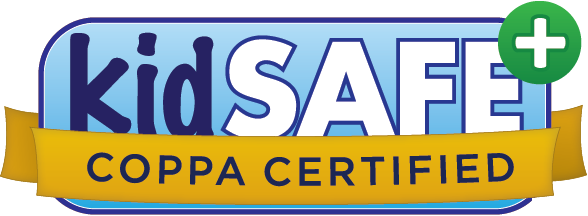Many people associate logic with a good game of chess or a quick round of sudoku, but there is more to logic than just the ability to win a match or solve a tough puzzle.
Logic is a particular way of thinking, most often using reason, deduction, and judgment. It helps in experiences such as understanding arguments, differentiating between “good” and “bad,” and making informed decisions.
However, this skill doesn’t come naturally to humans, we slowly develop logic as we grow and learn.
Logic can be a tricky concept to teach to children, but that doesn’t mean they aren’t capable of learning! Most kids are naturally curious and enjoy knowing why and how things work.
Caregivers can help children develop logic skills by encouraging them to:
- Ask questions – “Why do you think the sky is blue?”
- Think for themselves – “It’s raining outside, what kind of shoes would be best to wear?”
- Use strategies to solve problems – If all their toys don’t fit in the box, ask them “What is happening with your toys, what should we do?”
- Encourage your child to make predictions – “What do you think you’ll learn at school today?”
- Point out patterns and help kids make connections – “Do you see that sign says ‘car,’ remember we learned that word yesterday?”

Problem-solving Games
1. Hide and seek 🙈
You can play the classic version of the game or any number of variations. One adaptation is to hide one of your child’s favorite toys. As they look for the toy, guide your child with clues such as: “hot” and “cold.” Say “warmer” as they get closer to the toy and “colder” as they get farther away.
Then switch and have your child hide a toy and guide you to find it!
2. I spy 🔎
Choose an object in your vision, but don’t tell your child what it is. Give them clues to try to guess your object by describing it.
For example, if your object is a pepper on the kitchen counter, say “I spy something red” or “I spy something that starts with the letter P.” This is a fun game that can be adapted for kids of all ages!
3. Scavenger hunts 🗺️
Make a list of items you are likely to find in your area. If you’re at home, your list may contain items like “something small and blue” or “something cold.” If you are at an outdoor park, you can search for things like “three insects,” “a person walking a dog,” or “a leaf with five points.” Challenge your child to use logical thinking to find as many items on the list as possible! Ask them probing questions such as, “Where can we find a leaf with five points? In the kitchen or in the backyard?”
Organization and Sequencing Activities
4. Arranging and classifying 🗄️
Pile all your child’s toys in the center of a room. Then, have them arrange their toys by size, shape, color, texture, or habitat. Which stuffed animals live in the ocean? Which ones walk on land? You can have a lot of fun and get creative by making the challenges timed!
5. Play a board game ♟️
Board games, puzzles, and mazes are great ways to help children practice logic skills. Games such as Checkers, Guess Who?, Cat Crimes, and Qwirkle are fun for the whole family! In addition to practicing logic, kids can also work on their ability to focus and be a team player.
6. Age-appropriate sequencing games 🔶
Sequencing games encourage kids to place objects in the correct order or pattern. Very young learners can start to predict number and shape patterns, while more advanced kids may enjoy decoding secret messages written in numbers or symbols. There are many free online sequencing games, just be sure to supervise while your child is playing on the internet!
Riddles and Word Games
7. Riddles 🕵️
Riddles are great for giving the brain a workout! You can find numerous riddles for kids with a quick Google search. Riddles can also help children practice new vocabulary words.
For example, What has a face and two hands, but no arms or legs? A clock!
8. Crossword puzzles and word searches 🧩
In addition to encouraging kids to use logical reasoning, these activities are also great for strengthening preliteracy skills. Word games like “Mad Libs” create tons of laughs while also teaching about verbs, nouns, and adjectives!
Helping your child strengthen their ability to think critically from a very early age will serve them during their entire lifetime!
Logic Skills and Lingokids
Interested in learning more about how Lingokids helps kids develop logic skills? Download the app and check out the content on our YouTube channels.
How does your family teach logic skills? Let us know by tagging us on social media!






